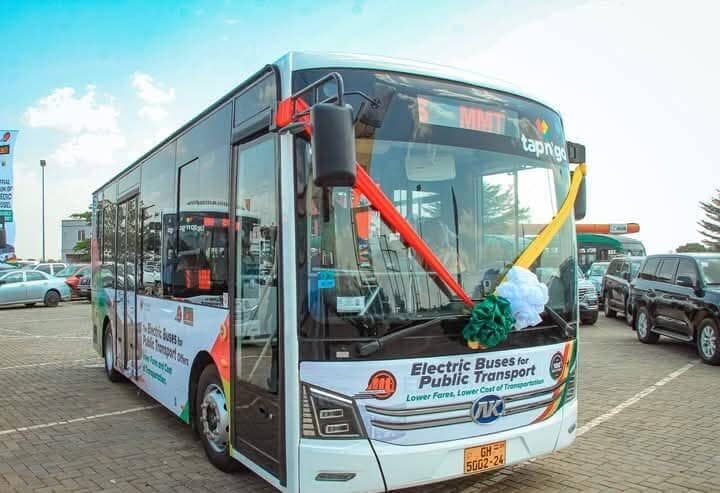The Government of Ghana has commissioned 100 energy cars in a landmark effort to modernize and encourage responsible public transportation. This shift aligns with Ghana’s commitment to reducing carbon pollution, improving industrial freedom, and transitioning to green power sources.
The energy cars, equipped with state-of-the-art systems, are designed to provide an eco-friendly alternative to traditional diesel-powered public transportation cars. These cars operate at zero greenhouse gases, helping to advance Ghana’s climate goals and aiding in the fight against climate change worldwide.
At the commission meeting, the Minister of Transport, Hon. Kwaku Ofori Asiamah, emphasized the government’s commitment to improving the quality of public transportation while safeguarding the environment. The secretary stated that” this program is a testament to Ghana’s dedication to adopting novel options for a green future.”
The buses are expected to operate across major urban centers, including Accra, Kumasi, and Takoradi, under the Metro Mass Transit Limited ( MMT ) t0 provide efficient, affordable, and clean transportation for thousands of daily commuters. Functions such as air conditioning, Wi-Fi communication, and accessibility for persons with disabilities assure a pleasant experience for travellers. A system of charging stations strategically placed throughout the nation also provides support for the cars. These facilities have been created in close collaboration with private sector partners to ensure smooth operation.
The introduction of these cars is expected to make career opportunities in production, operations, and repair. Additionally, the shift to electronic buses will decrease the government’s reliance on imported fossil fuels, saving international trade and boosting energy security.
The job was executed through a public-private agreement, involving local and international investors. Suppliers of electric vehicles and alternative energy companies were key partners, who provided technical skills and ensured compliance with international standards.
The program has been met with excitement from Ghanaians, who have huge called for improved public transport system. Over the next five decades, the government intends to add 500 energy trucks to its fleet by 2030.
Ghana’s government commissions 100 electrical buses to improve public transportation
